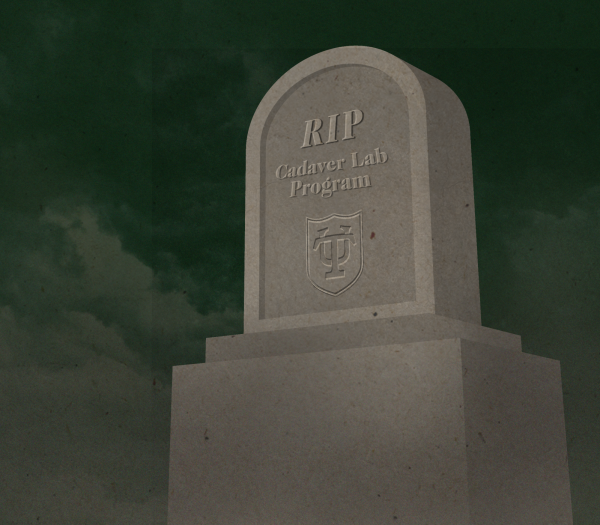
Next semester, the Tulane University School of Science and Engineering will no longer offer the CELL-4490, or Anatomy, cadaveric dissection course, a unique class only offered to undergraduates by few universities.
Although there has been no formal announcement about the end of the program, the science and engineering department has not included the Anatomy with Lab course as a spring 2024 class offering and has increased the Head and Neck Anatomy — the subsequent course in the anatomy lab sequence — course fee from $200 to $1000.
Laboratory courses still offered through SCEN focus on interplay between anatomy and physiology while those offered through biomedical engineering highlight content relevant for BMEN students. But these labs differ highly from the CELL lab program, which emphasizes clinical corrections and injuries. The elimination of the CELL lab has prompted concerns about the number of available seats in this highly sought after course.
Tulane is one of few universities that offers a cadaveric dissection lab for undergraduates, and the choice to discontinue one of the lab offerings came as a shock to some students, especially those who said they planned to take it in preparation for medical school.
“From my understanding, there’s a lot of students that were emailing and asking to take it or asking why it wasn’t listed anymore, and the feedback that I’ve gotten is, ‘But I need that for school,’” Professor Sarah Garner, who teaches the anatomy lab, said.
Throughout the semester, students in the cadaver lab dissect an entire cadaver, learning the structures of the human body and the anomalies displayed in the cadaver.
Senior Jasmine Kiley, a pre-med student currently enrolled in the lab, expressed concern over the future of the lab, stating its importance not just for learning human anatomy but for emotional maturity.
“A lot of us feel like those cadavers are our first patients because it’s an extremely intimate experience,” Kiley said. “We’re incredibly grateful for the sacrifice that the donors have given us and the sacrifice that their families have given us.”
“There’s a difference between reading something on a textbook page and going in there and really dissecting,” senior Eshan Damle, a pre-med student currently in the lab, said. “You learn what a nerve feels like versus how collapsible an artery feels like.”
Damle and Kiley have teamed up to write a petition that details how beneficial the course is and potential solutions instead of fully cutting it in an attempt for Tulane to reconsider the discontinuation of the lab. As of Dec. 6, the online petition has received 1,113 signatures.
Kiley said that the opportunity to take a cadaver lab course in undergraduate has made her a stronger medical school applicant and sets Tulane apart from other schools.
“If they want to keep getting high-caliber students here, they need to keep offering something that’s better than other schools, and this is one of those things, clearly,” Kiley said.
Garner, a Tulane graduate who took the course herself, says the experience confirmed her career path.
“It changed what I wanted to do. The whole reason that I am what I am now and do what I do now is because I had the opportunity to take it,” Garner said. “I see all the students that come through my lab, and it solidifies what they want to do with their futures. I do think that it can actually be life-changing. It’s not just another class.”
Correction: a previous version of this story contained an error that did not specify which sections of the cadaver lab were no longer being offered. The article has been updated to reflect that only the lab associated with the CELL 4490 Anatomy course is not being offered in spring 2024.


